The woman who stole Joel Edgerton’s heart in rural Africa
Direct from his latest Hollywood success, Aussie actor Joel Edgerton found himself totally smitten with a charismatic woman in Africa.
Hawiti’s tiny mud-caked feet twitch on the end of the stretcher in fright as a local anaesthetic is injected into her eyelid, prompting Joel Edgerton to reach out to clutch her hand.
The 60-year-old woman, who set out at dawn for the long walk from her hut 15km away to be here, nods to indicate she is ready.
Carefully, her left eye lid is rolled back and clamped, revealing thick layers of scar tissue upon scar tissue, and the surgeon begins slicing.
“You’re doing really well,” Edgerton tells her, gently patting her hand, which looks almost comically small when enveloped in his.
The makeshift operating theatre is in a small office, 4m x 3m, in a health centre in the Jeju region of rural Ethiopia.
Outside, about 300 people form a queue stretching around the entire perimeter of the U-shaped concrete compound, waiting to be assessed and treated for the horrific eye disease, trachoma.
“It’s a disease caused by infections related to hygiene and a lack of clean water for people to clean their hands and faces properly,” Edgerton explains.
Over time, scar tissue builds up and causes the eyelid and eyelashes to turn inward.
“It’s passed from person-to-person, causing major discomfort, serious pain and scratching of corneas, which can then cause permanent blindness,” Edgerton says.
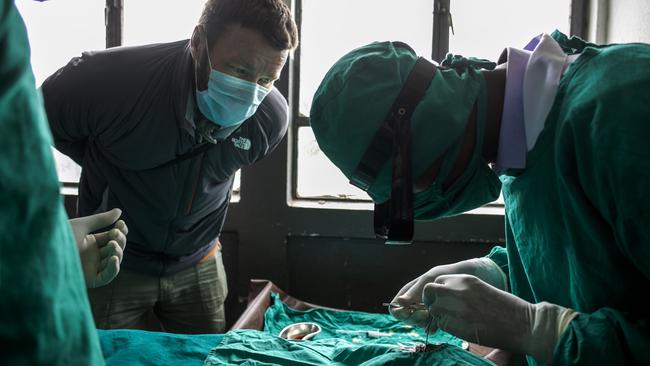
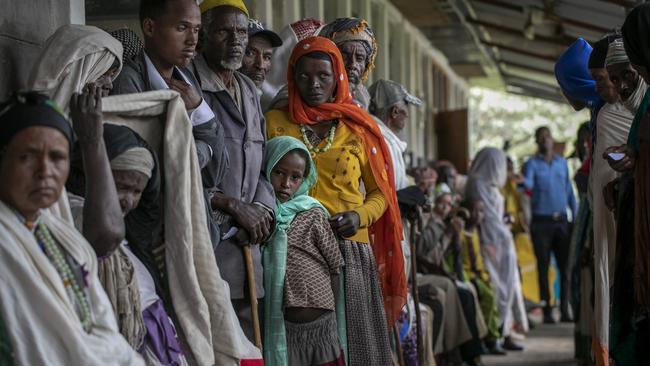
As an ambassador for the iconic Fred Hollows Foundation, Edgerton has decided to spend his first week off all year travelling throughout the impoverished African nation to inspect the charity’s efforts to combat trachoma.
Not long after arriving at the clinic on a rainy morning, the actor, director and writer was instantly drawn to Hawiti, who was waiting patiently for her turn to be operated on.
“I had a bit of a crush on Hawiti when I met her,” Edgerton laughs.
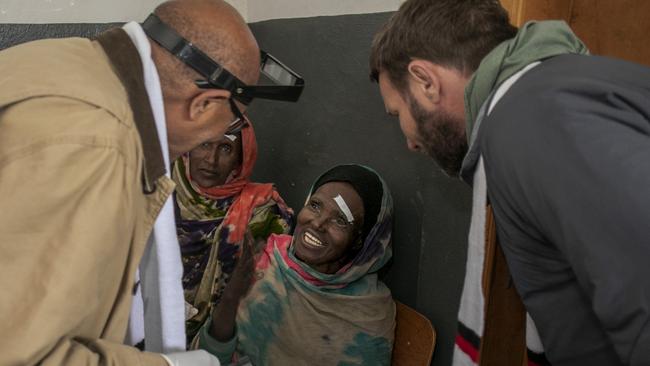
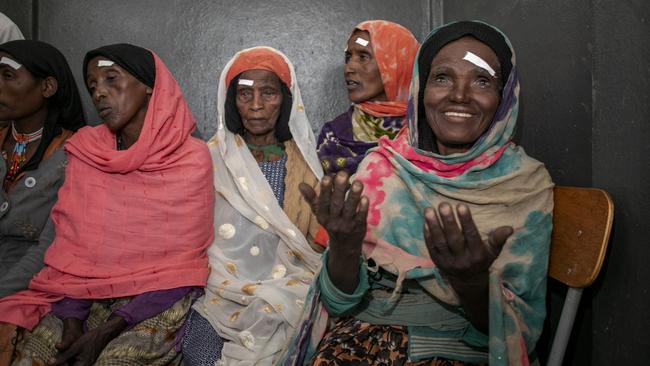
“There was something about her spirit and her energy that I really liked. She was sitting there very patiently, you could tell she was a little nervous about having surgery. But afterwards, she was so happy to have her discomfort taken away.”
Hawiti first began experiencing trachoma symptoms two years ago, and over the course of 2018 the pain and repeated infections became unbearable.
Thankfully, her condition isn’t too seriously advanced.
Left untreated for too long, the inwardly turned lashes — called trichiasis — scratch the cornea away beyond repair and in far too many cases, causes total and irreversible blindness.
“The operations the teams do essentially cuts the eyelid and sews part of the under bit to the top, allowing the eyelashes to grow outwards,” Edgerton says after witnessing a surgery.
“The patches are taken off the next day and the relief is immediate.”
The preventable disease affects an estimated 27 million people in Ethiopia and over the past two years, a team of health officers trained by Fred Hollows has performed 110,000 surgeries to ease the crippling pain sufferers endure and prevent further damage to their sight.
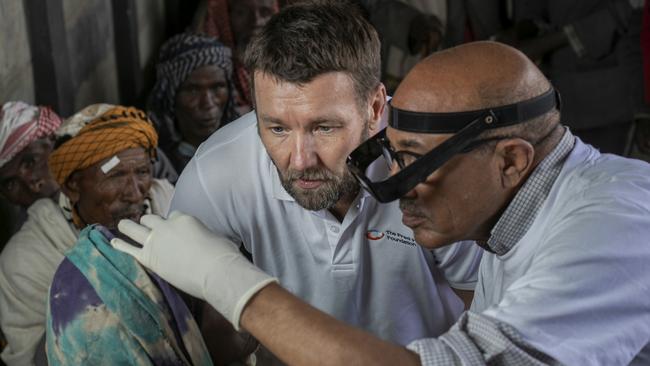
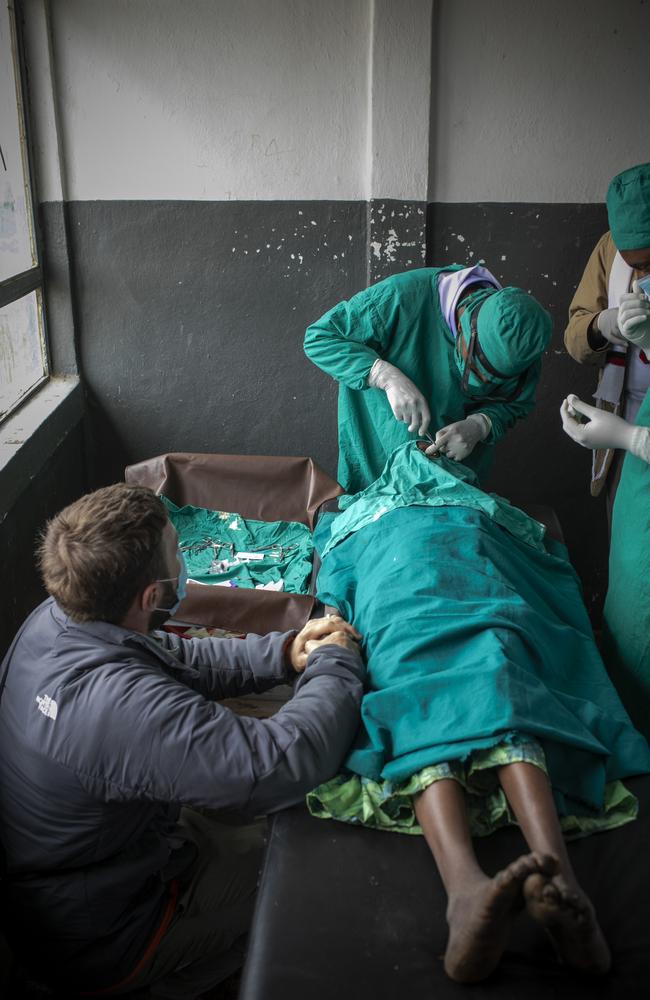
Dr Wondu Alemayehu is leading the mammoth project, which has also distributed 20 million doses of antibiotics to halt the disease and rolled out personal hygiene education programs targeting children.
“Trachoma affects mainly kids and mothers and so it makes a huge difference in quality of life of families to do this work,” the renowned ophthalmologist says.
“Severe trachoma trichiasis in children indicates how big the problem is. I’ve seen children as young as three with serious vision problems. We’ve made good progress but have to keep pushing to get rid of the scourge of trachoma.”
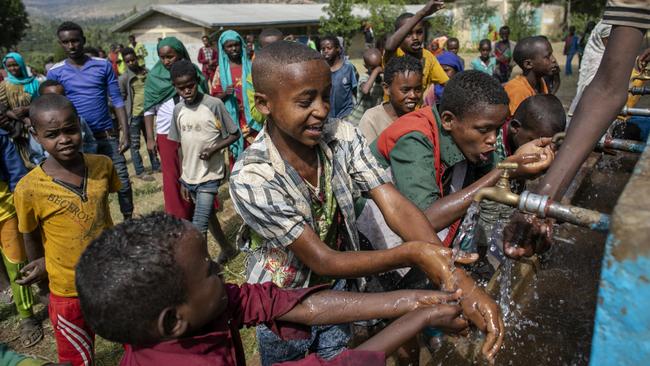
A week earlier, a mobilisation team travelled to villages within a 60km radius to inform locals about the clinic, drawing hundreds each day to be looked at by medical staff.
Most of them came on foot, walking for several hours to see whether they required surgery.
Melia is among them and the prognosis is not good.
She is almost completely blind after a decade of infection, in what Dr Alemayehu says is the worst case he has seen in a while.
She looks perhaps 20 years older than her 45 years. But she has endured much in her life, including the death of all five of her children as well as her husband.
“People live off the land, farming and collecting water, walking long distances, cooking and caring for their families,” Edgerton says, visibly moved by Melia’s story.
“If you spend a large part of your day walking to collect water or harvesting, if you can’t see then you either can’t be involved in the process or you need someone to help you get around.”
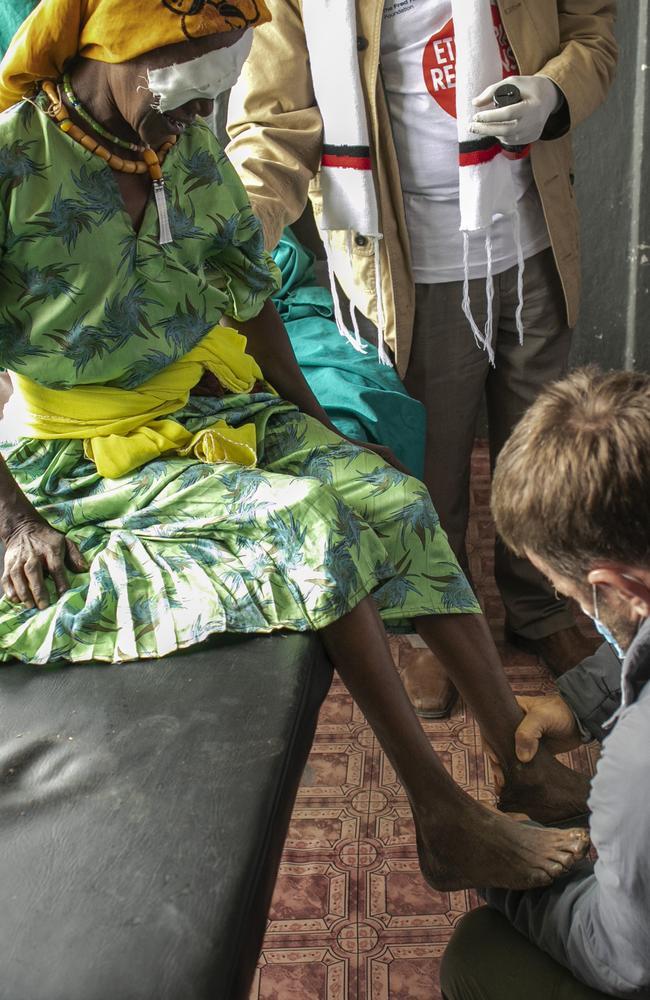
Melia’s nephew Jibril brought her here today. They left at sunrise and arrived in the early afternoon after a gruelling 20km walk.
While she is in surgery, both of her eyes sliced and stitched to prevent the lids and lashes from turning inward again, the heavy mist outside begins to clear.
For the first time all day, the sun pokes through the dark grey clouds and burns away the haze. Sadly, for Melia, the clouding that cover her corneas will not clear.
“This is a completely avoidable and preventable disease, affecting huge populations,” Dr Alemayehu says. “Mothers are the minds and hearts of families … we can make a huge difference if we get to these people early, before blindness is irreversible.”
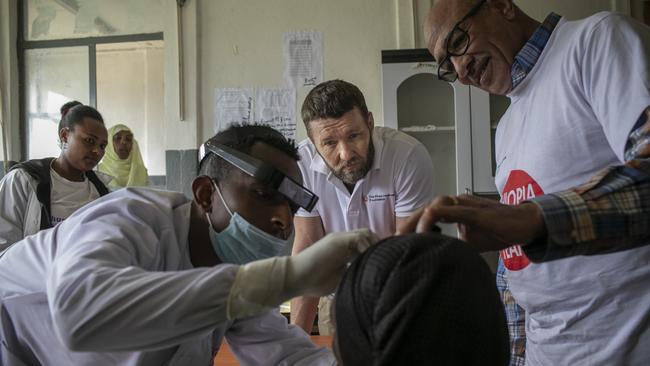
Twenty-four hours since Edgerton first met Hawiti, the gregarious woman with a cheeky smile who stole his heart returns to the clinic to have her patches removed.
“I’ve been waiting for you,” he beams, taking her by the hand to help her into the office.
She winces as the tape is peeled back from her skin, smudges of blood on the gauze, but smiles when she peers at the Hollywood star beside her.
“I can’t say his name but I love him,” she laughs. An interpreter helps her to pronounce Joel, her effort earning his praise and a beaming smile.
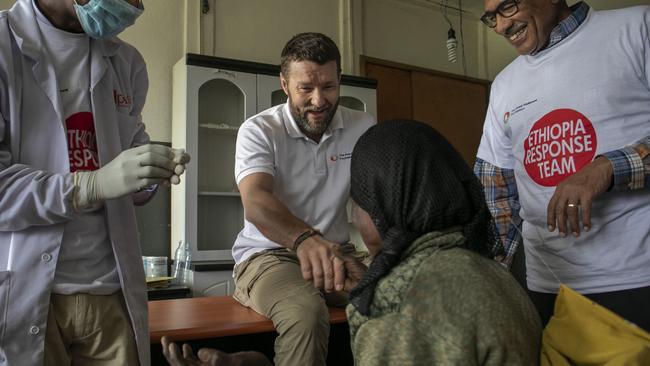
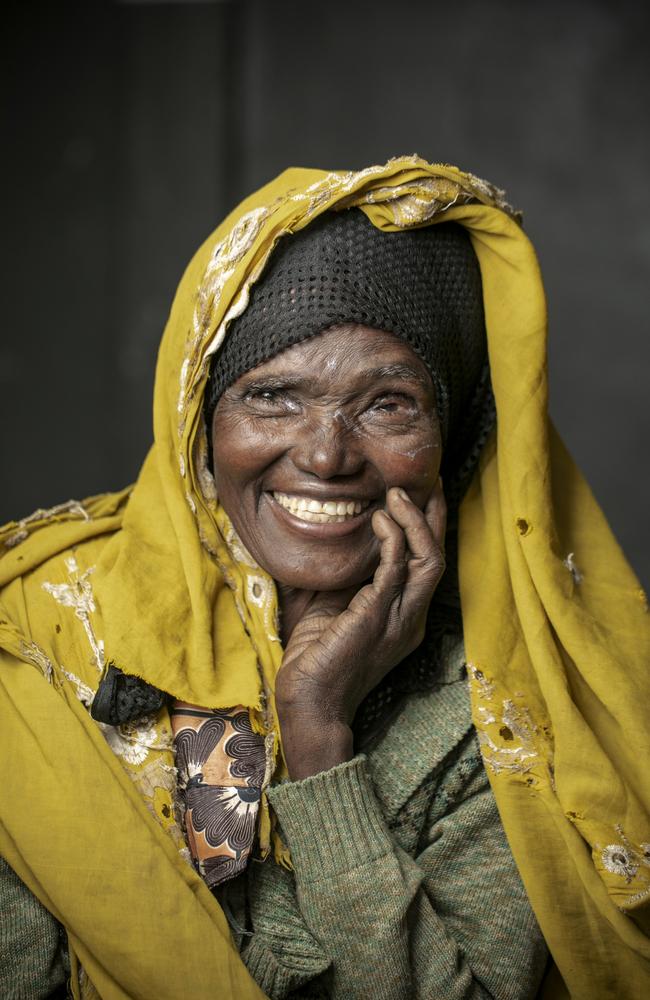
Hawiti reaches out for Edgerton’s hand, kissing it enthusiastically, before launching into a prayer in his honour.
The room stops and falls completely silent as nurses and health care workers listen on, murmuring “Amen” occasionally or nodding in approval, as she wishes him good luck and a long life.
“Through a translator, I found out she was blessing us with longer lives and a better income, wishing us all the best in every aspect of our lives,” Edgerton says later.
“She was so happy and very expressive, very thankful towards me — I did nothing, I just stood there and watched. It was all the doctors.
“She was so happy to have the pain go away immediately and realise the benefits it was going to have. It was a really special moment.”
Hawiti’s joy is palpable.
Via an interpreter, she says: “I feel good now. I am happy. No more pain.”
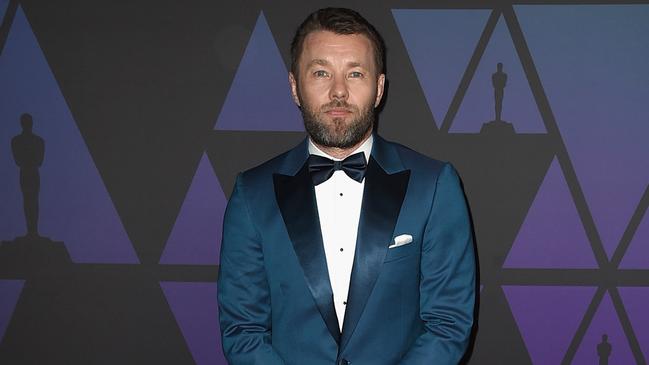
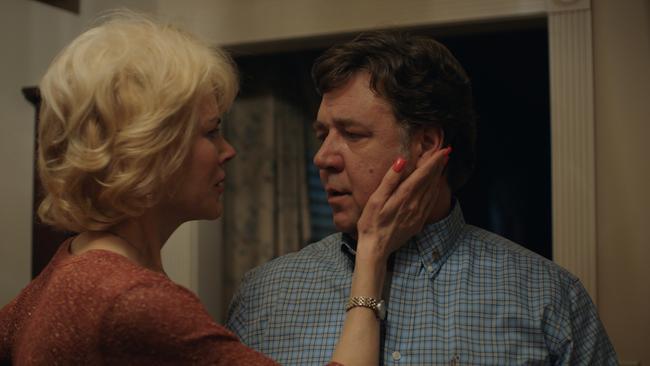
She invites Edgerton to her home, before admitting that she doesn’t have much in the way of food or drink but insisting he come to visit.
“I’ve got some biscuits in the car that I can bring,” he offers.
It’s unlikely she understands his words, but she beams her charismatic smile at him and grabs his hand, kissing it once more.
As the four-wheel drives make the slow and bumpy journey towards her small mud hut, a crowd of curious neighbours assembles.
“She became a bit of a local rock star,” Edgerton says. “All of a sudden about 30 or 40 neighbours and people from the community were gathered around her hut. She was so happy.”
Dr Alemayehu is curious to see the village’s water source and leads Edgerton on a walk through pastoral fields.
It’s here the actor gets a first-hand look at the enormity of the trachoma problem.
“They had a little pump from a freshwater source in the next township, but it had broken six years ago,” he says. “So they were drinking out of a dam essentially, this dirty pond that was also used by livestock.
“When Dr Wondu asked if they were boiling water, they said only when they made coffee, and that’s really the problem here.
“When people spend several hours collecting water every day and the vessels are quite small, you can see why the notion of using the precious bits of water you have to wash your face or hands is viewed as a waste.”
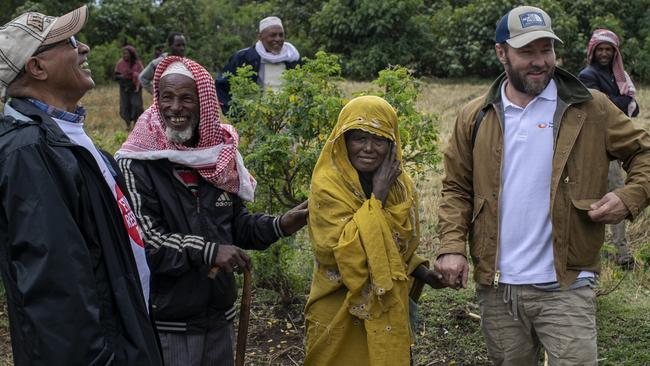
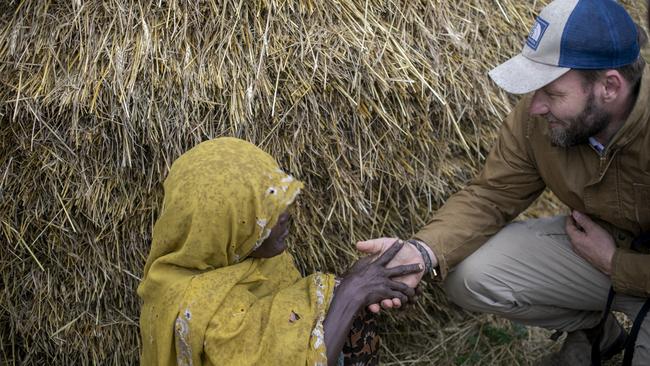
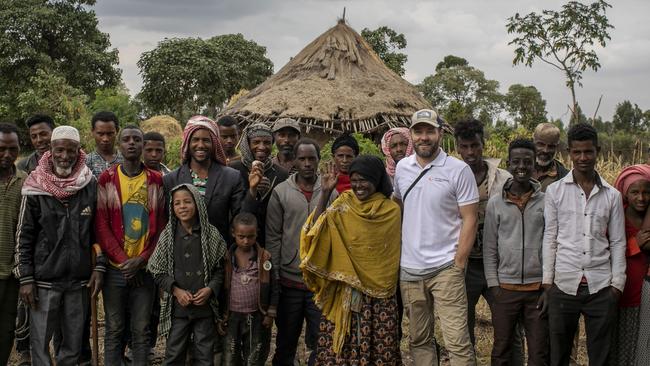
On the one hand, Edgerton leaves Hawiti’s humble home feeling optimistic, having seen how the operation will dramatically improve her life.
She can play with her grandchildren now and venture outside unassisted. She can cook — something she loves and had missed so much. Once more, she can be part of the community.
“It makes me happy to see this,” he says.
“But on the other hand, I see the lack of access to clean water and realise how much work we still have to do. I’m hopeful but energised … to raise awareness and get more people involved in this project.”
Find out more about The Fred Hollows Foundation’s major project battling trachoma in Ethiopia and give your support.
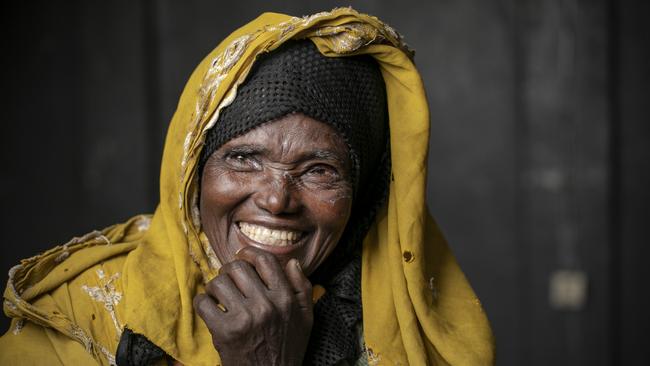
The journalist travelled to Ethiopia as a guest of The Fred Hollows Foundation.
Originally published as The woman who stole Joel Edgerton’s heart in rural Africa


